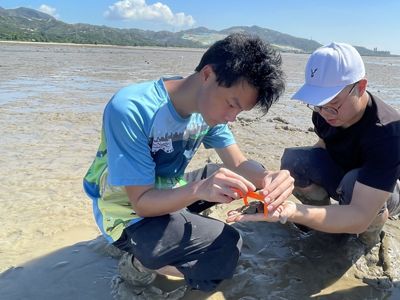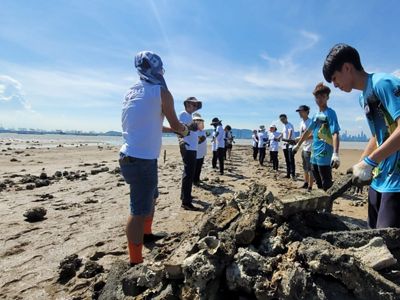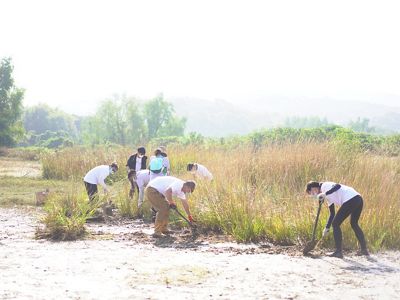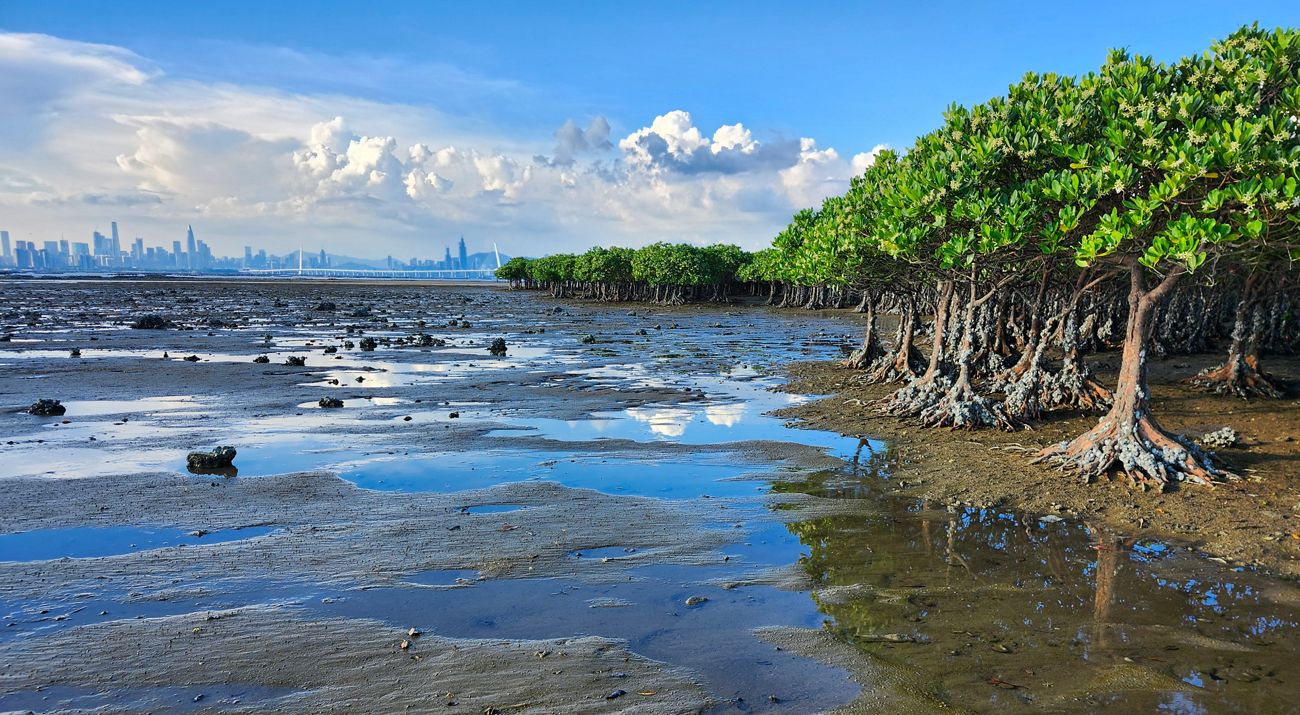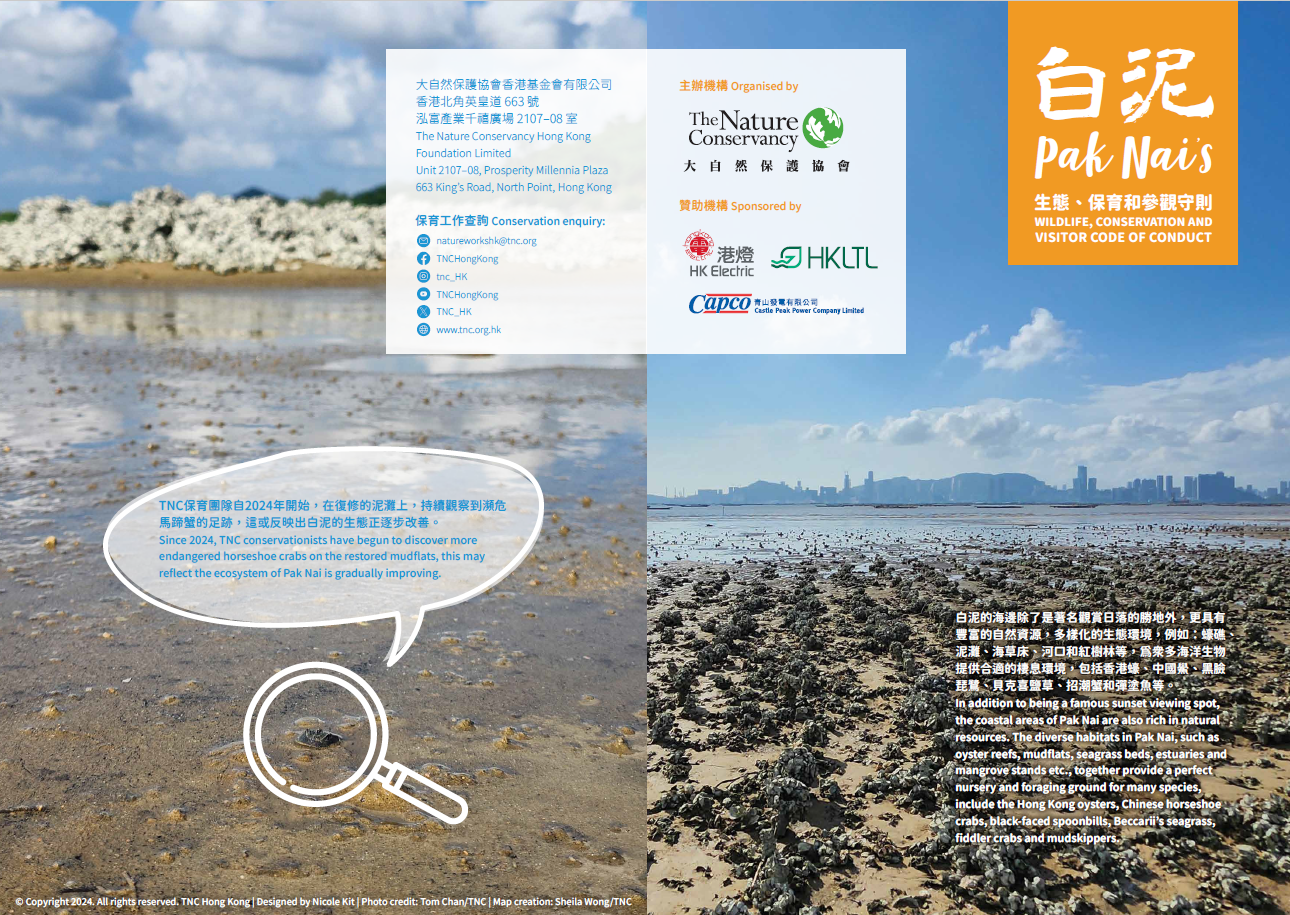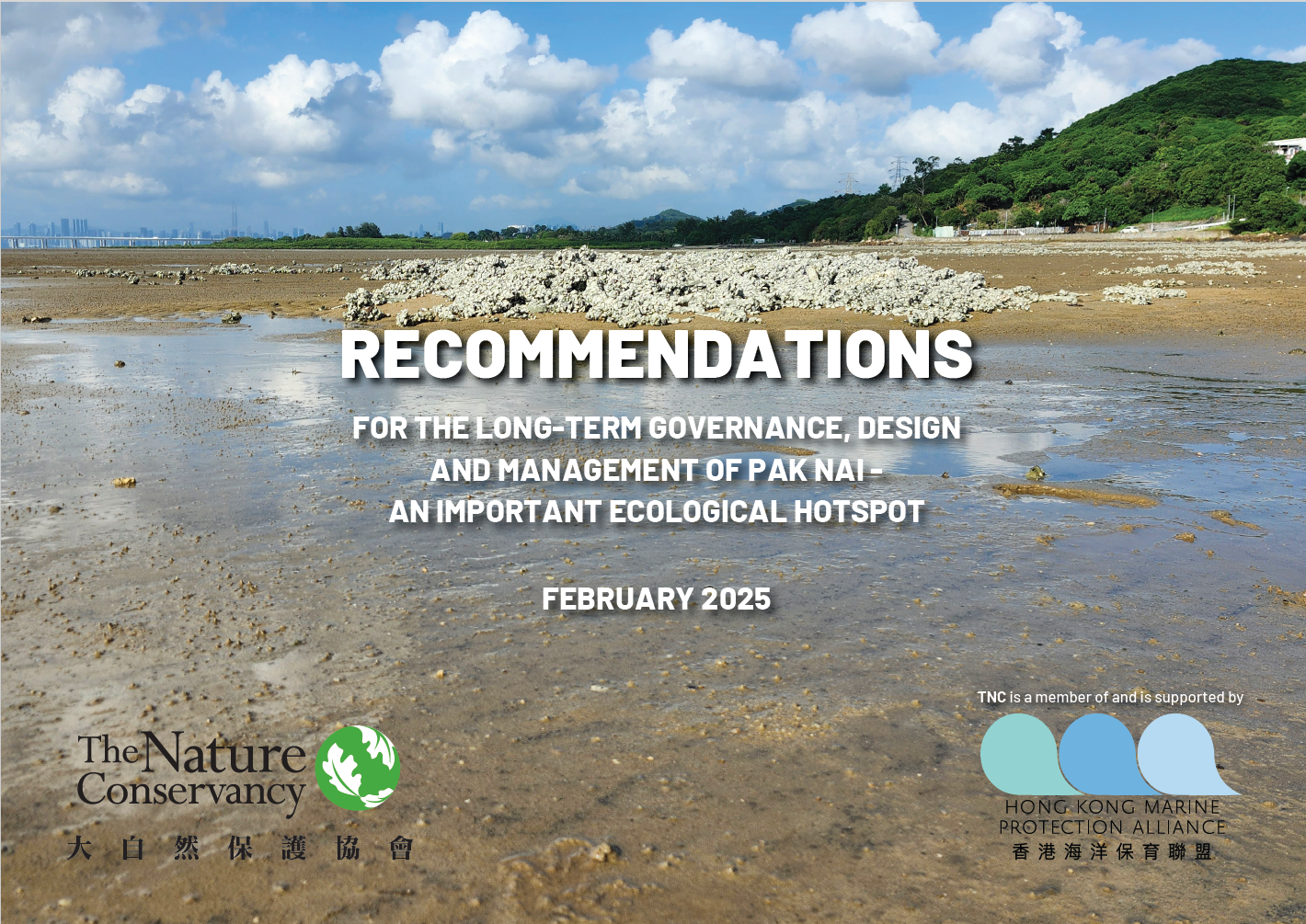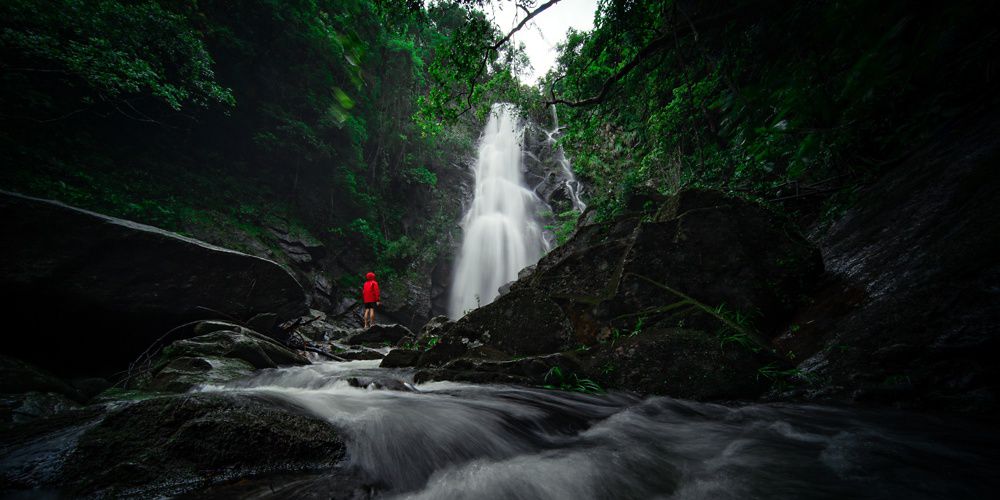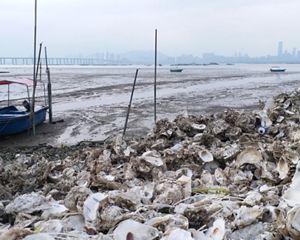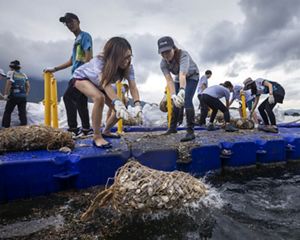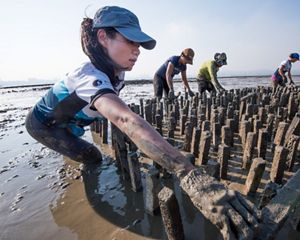Scaling Up Community Conservation for Deep Bay
Protect sensitive biodiversity along the coast and formulate long-term policy recommendations for the proposed Coastal Protection Park
The Nature Conservancy (TNC) aims to restore Hong Kong’s lost shellfish reefs to increase local biodiversity and fish production, improve water quality and enhance natural coastal defences against storms. Led by TNC’s expertise in restoring shellfish reefs in over 150 sites globally, we constructed our first pilot oyster reef in Lau Fau Shan in 2018, with the objective to understand the impacts of restoration on local biodiversity. In 2019, TNC established a second pilot site in Tolo Harbour using recycled oyster shells, the preferred substrate for new oysters to settle and grow on.


In 2021, we launched the "Managing Pak Nai’s Ecologically Important Habitats to Preserve its Natural Beauty and Sensitive Biodiversity" community conservation project (Pak Nai project).
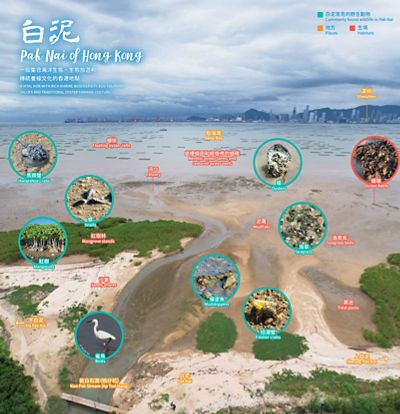

Historically, Pak Nai was a site for traditional benthic oyster farms cultivated by local villagers. Though this traditional method of oyster farming is no longer in use, the mudflats of Pak Nai remain an ecological hotspot where endangered horseshoe crab and seagrass species can be found. However, Pak Nai is currently statutorily unprotected and unmanaged, leaving it exposed to increasing threats such as unsustainable tourism and the rampant spreading of invasive species. From 2021 to 2024, TNC and more than 5,000 youths and volunteers have restored 8,000m2 of abandoned oyster farms, removed 2,600m2 of invasive cordgrass pitches, and removed 3 tons of aquaculture debris and marine litter in Pak Nai. These habitat management works help us to achieve the long-term goal of restoring Pak Nai’s ecosystem which is now well managed and benefits local communities and nature.
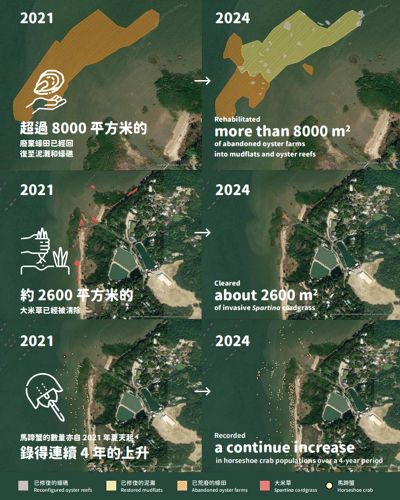
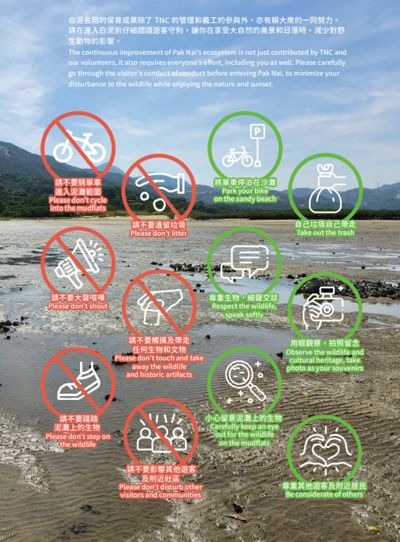
Thanks to the support of our community partners, the Pak Nai project has been a resounding success and surpassed many of its ambitious targets. For 4 years running, we have seen horseshoe crab populations increase, a major testament to the success of our habitat management strategy. But there is still much to do. Pak Nai still sits outside of official protected areas and requires ongoing site-based management to preserve and enhance its ecological integrity.
Download
For long-term governance, design and management of Pak Nai - an important ecological hotspot
DOWNLOAD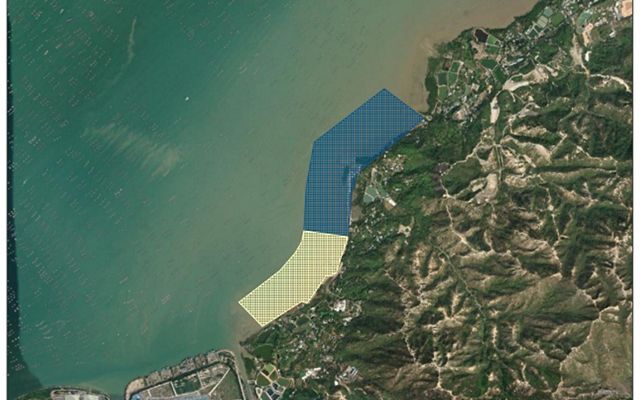

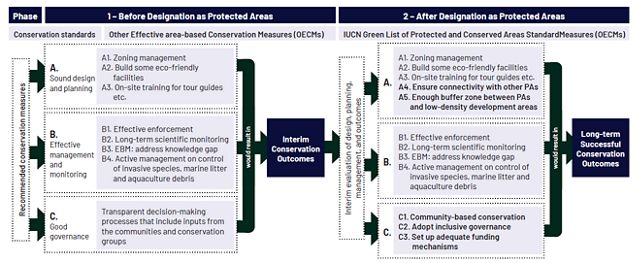
The recent Northern Metropolis development proposal from the HKSAR government also presents an opportunity: it includes the creation of a Coastal Protection Park (CPP) between Tsim Bei Tsui and Pak Nai along the coast of Deep Bay. If done well, this presents a tremendous opportunity to enhance long-term conservation and protection, not only for Pak Nai, but across the entire coastline.
Because of this opportunity, TNC launched the “Scaling up community conservation for Deep Bay: protect sensitive biodiversity along the coast and formulate long-term policy recommendations for the proposed Coastal Protection Park” (Deep Bay project). This Deep Bay project leverages the Pak Nai project’s success, asks the HKSAR government for gazetting Pak Nai as a Marine Protected Area (MPA), and scale up our community-based management model from Pak Nai to other ecological hotspots across Deep Bay, to preserve Deep Bay’s ecological integrity and fill remaining knowledge gaps. Our goal is to develop long-term management recommendations for the CPP that are deeply rooted in science; equitable and inclusive of traditional cultural landscapes; co-developed with and endorsed by conservationists and local community stakeholders, and ultimately adopted by the government under the new CPP framework.
Specifically, this Deep Bay project’s objectives are:

TNC Community Partners of Deep Bay:
- Ha Pak Nai Education Centre Limited
- Hong Kong Bird Watching Society
- Hong Kong Maritime Museum
- Kadoorie Farm and Botanic Garden
- Outdoor Wildlife Learning Hong Kong
- The Conservancy Association
- The Swire Group Charitable Trust
- WWF-Hong Kong
TNC is also a member of the Hong Kong Marine Protection Alliance (HKMPA). HKMPA is asking for protecting 30% of Hong Kong waters as MPAs or by other effective area-based conservation measures by 2030. Pak Nai, Port Shelter, Ninepin Group and Shui Hau should be given priority and to be gazetted as MPAs.

